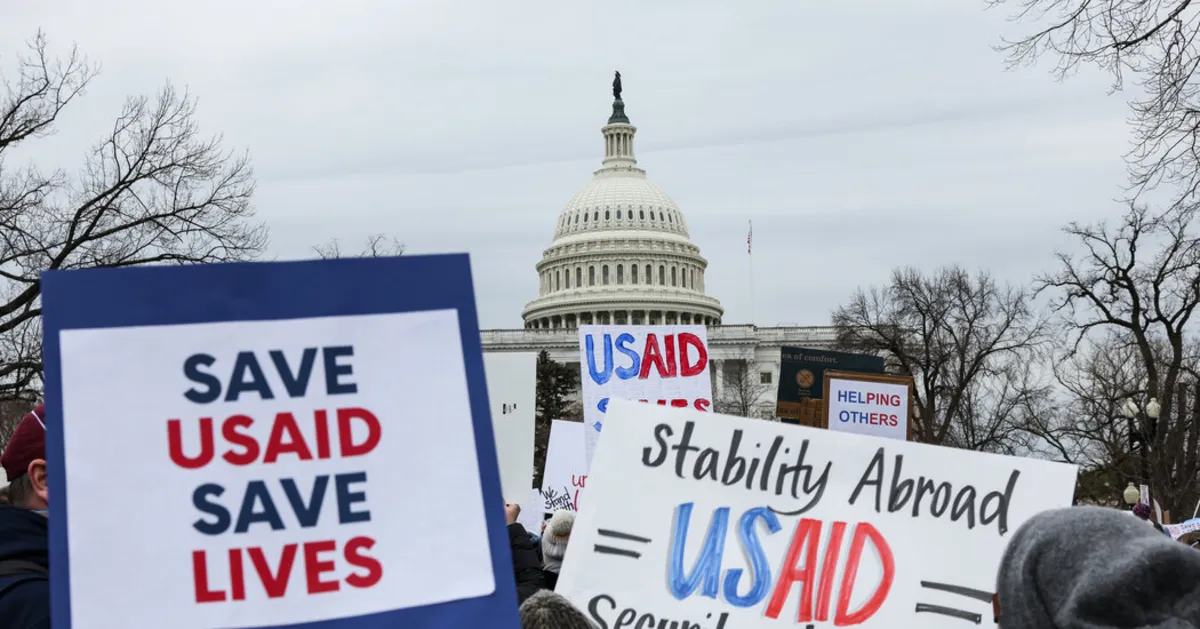
The recent ruling by the Supreme Court marks a significant moment in the ongoing legal battles surrounding former President Donald Trump’s attempts to reshape government policies. In a narrow vote of 5 to 4, the court sided against Trump on one of his key initiatives, indicating a willingness to scrutinize his administration's actions closely. Chief Justice John G. Roberts Jr. and Justice Amy Coney Barrett aligned with the three liberal justices, forming a majority that suggests the court is prepared to challenge the former president's expansive vision for federal authority.
Although the language of the court's order was somewhat ambiguous and mild, the essence of the ruling indicates a significant setback for Trump. The court's decision implies that Trump's various programs and plans will undergo rigorous examination by a deeply divided judiciary. This situation raises the possibility of major legal rulings that could redefine the separation of powers as outlined in the Constitution.
Justice Samuel A. Alito Jr., who authored the dissenting opinion, expressed strong disagreement with the majority’s stance. He questioned the authority of a single district court judge to mandate the federal government to disburse $2 billion in taxpayer funds without substantial justification. Alito's dissent reflects concerns that the ruling undermines the balance of power between the judiciary and the executive branch.
The controversy originated when the Trump administration halted foreign aid on January 20, the day he assumed office. His executive order was aimed at reviewing whether existing programs aligned with his foreign policy priorities. This abrupt freeze prompted several lawsuits from recipients and nonprofit organizations, which argued that the suspension of funds was unconstitutional and detrimental to global humanitarian efforts.
Critics of the funding freeze highlighted that it led to dire consequences, including the cessation of medical care, food waste, and the exacerbation of health crises worldwide. Legal representatives from organizations such as the Global Health Council emphasized the devastating impact of the administration's actions on vulnerable populations.
On February 13, Judge Amir Ali of the Federal District Court issued a temporary restraining order to prevent the administration from terminating payments mandated by Congress. Despite this order, the Trump administration continued to assert its right to review contracts on a case-by-case basis, which led to further legal confrontations.
When the Trump administration sought emergency intervention from the Supreme Court, Chief Justice Roberts issued an administrative stay to temporarily suspend Judge Ali’s ruling. However, the recent court order lifted that stay, placing the responsibility back on the lower court to clarify its directives regarding compliance timelines.
The dissenting justices, including Alito, Thomas, Gorsuch, and Kavanaugh, viewed the court's ruling as a troubling overreach of judicial authority that imposes a financial burden on taxpayers. Alito criticized the majority for allowing a single judge to dictate large-scale federal spending, arguing that the court must defend the constitutional powers of federal judges against potential abuse.
As the legal battles continue, it remains unclear how the case will evolve within the judicial system, but it is evident that Trump's administration will face ongoing scrutiny regarding its policies and their constitutionality.
The political landscape remains polarized, as evidenced by the public's response to Trump's recent address to Congress. Many attendees expressed mixed feelings about the content and tone of the speech, highlighting the divisive nature of contemporary American politics. Some audience members appreciated Trump's assertive leadership style, while others were dismayed by his harsh rhetoric and confrontational approach toward Democrats.
Attendees shared varied perspectives on Trump's performance. Tali Jackont, a voter who switched allegiance to Trump, praised his charisma and humor, noting that his address effectively connected with key issues. Conversely, Isaiah Thompson, a college student, criticized the president for using the platform to launch personal attacks rather than focusing on unifying messages.
Others, like Darlene Alfieri, expressed disillusionment with the Democrats’ response to Trump’s address, feeling that the party's inability to acknowledge positive contributions undermined its credibility. Alfieri reflected on the necessity for constructive dialogue rather than constant opposition.
Local leaders also weighed in on the implications of Trump's policies, particularly concerning immigration and trade. Jaime Escobar Jr., mayor of Roma, Texas, noted the stark contrast in immigration enforcement under Trump's leadership compared to the previous administration. However, he voiced concerns about the potential economic repercussions of ongoing tariff disputes.
Overall, the reactions to Trump’s address reflect a broader national dialogue about governance, policy effectiveness, and the future direction of the country. As legal and political battles unfold, the implications for American society and governance will continue to evolve.